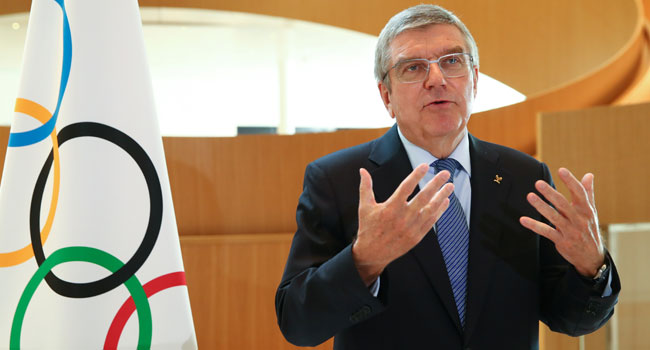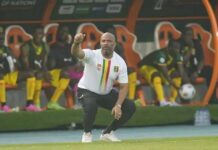International Olympic Committee (IOC) President Thomas Bach made a significant announcement during the Paris Games on Saturday, stating that he will not seek a third term as the head of the organization. The 70-year-old German lawyer, who has led the IOC since 2013, made it clear that he believes the time has come for new leadership to take the reins of the Olympic movement.
“New times are calling for new leaders,” Bach told a session of IOC members in the French capital. Despite being urged by some within the organization to continue his leadership, Bach emphasized his commitment to upholding the Olympic Charter, which restricts the presidency to a maximum of 12 years. “I know with this decision I am disappointing many of you,” he acknowledged, “But it is in the best interests of our beloved Olympic movement.”
Bach’s decision sets the stage for a new chapter in the IOC’s history. His successor will be elected during the IOC’s 143rd session, scheduled to take place in Athens from March 18-21, 2025. The newly elected president will assume office in June of that year, marking the beginning of a new era for the IOC.
As the search for Bach’s successor begins, speculation is already rife about who will step into the role. Among the potential candidates is Kirsty Coventry, a 40-year-old former swimmer from Zimbabwe and a highly respected figure within the IOC. Coventry, who has made a name for herself as a champion of athletes’ rights and sports development, is seen by many as a strong contender to become the next IOC president.
 Another name that has emerged as a potential successor is Nicole Hoevertsz, a 60-year-old former synchronized swimmer from Aruba, who currently serves as an IOC vice-president. Hoevertsz’s deep experience within the organization and her reputation as a steady and principled leader make her a formidable candidate for the role.
Another name that has emerged as a potential successor is Nicole Hoevertsz, a 60-year-old former synchronized swimmer from Aruba, who currently serves as an IOC vice-president. Hoevertsz’s deep experience within the organization and her reputation as a steady and principled leader make her a formidable candidate for the role.
Sebastian Coe, the British World Athletics chief and two-time Olympic gold medallist over 1,500 meters, is also being tipped as a possible contender. Coe’s experience as a sports administrator and his successful leadership of the London 2012 Olympics have positioned him as a respected figure within the global sporting community.
Thomas Bach’s tenure as IOC president has been marked by significant achievements and challenges. A gold medalist in fencing at the 1976 Olympics for West Germany, Bach’s journey with the IOC began when he was elected as a member at the age of 37.
Over the years, he played several influential roles within the organization, including as a founding member of the IOC’s Athletes’ Commission. When he succeeded Jacques Rogge as president in 2013, Bach introduced a vision for the future of the Olympic Games, encapsulated by his slogan, “change or be changed.”
Under his leadership, the IOC has focused on making the Olympic Games more sustainable and cost-effective. Bach’s initiatives aimed to reduce the environmental impact of the Games and ensure that they remained financially viable for host cities. His efforts to modernize the Olympics have been well received, though his presidency has not been without controversy.
Throughout his tenure, Bach has consistently voiced his opposition to sports boycotts, advocating for the separation of political conflicts from the Olympic Games. He has worked to maintain the integrity of the Olympics as a platform for unity and global cooperation, even as the world has become increasingly divided along political lines.
As Bach prepares to step down, he leaves the IOC in a strong position to face the future. The next president will have the opportunity to build on Bach’s legacy, with the Olympic Games already awarded through to 2034, and significant interest expressed in hosting the 2036 and 2040 editions. Bach himself noted that the groundwork has been laid for the IOC to continue its mission with “peace of mind,” as the organization looks ahead to the next decade of global sports.
In his final remarks, Bach reflected on his journey with the IOC, pausing for a few moments with tears in his eyes. His words echoed the sentiment that has guided his presidency: “This mantra also applies to myself.” With this statement, he signaled his readiness to pass the torch to the next generation of Olympic leaders, who will undoubtedly face their own set of challenges as they navigate the evolving landscape of international sports.
As the countdown to the next IOC election begins, the world will be watching closely to see who will emerge as the new face of the Olympic movement. The decisions made in the coming months will shape the future of the Games and the role they play in bringing the world together in the spirit of competition and camaraderie.




